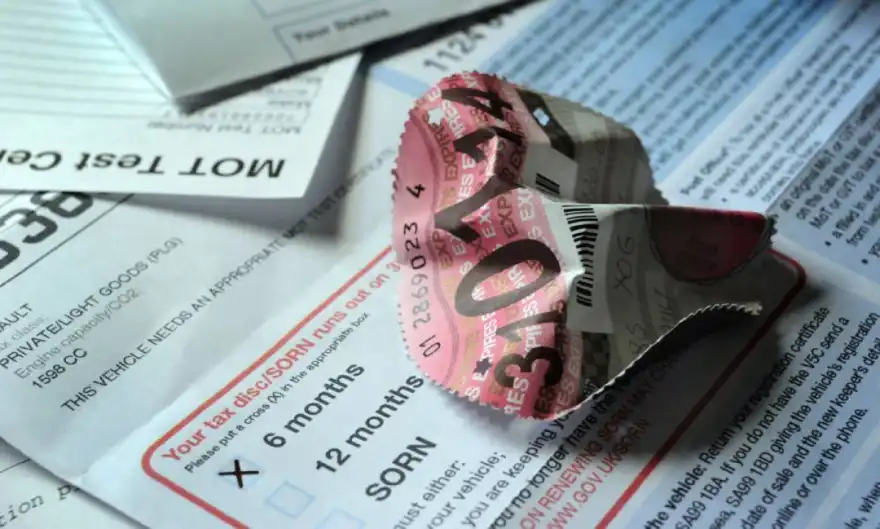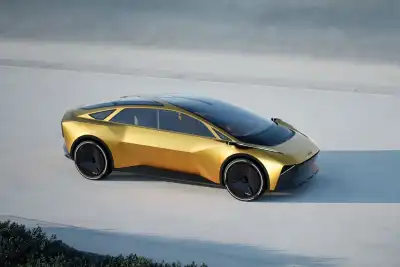
Vehicle Excise Duty rates rise in line with inflation on April 1st 2022 in the United Kingdom, Her Majesty’s Revenue and Customs confirmed. The purpose of the hikes is to further encourage motorists to buy cleaner, zero emission, electric cars and ensure that they continue to ‘make a fair contribution to public finance’.
April 1st 2017 onward
Cars registered from April 1st 2017 are taxed according to their carbon emissions, in year one on the road only. The higher the emissions the higher the charges. The 2022/23 rates are shown in the following table alongside any increases from the previous year.
Petrol and diesel car first year rates
| CO2 emissions (g/km) | 2022/23 | Increase from 2021/22 |
| 0 | £0 | £0 |
| 1-50 | £10 | £0 |
| 51-75 | £25 | £0 |
| 76-90 | £120 | £5 |
| 91-100 | £150 | £10 |
| 101-110 | £170 | £10 |
| 111-130 | £190 | £10 |
| 131-150 | £230 | £10 |
| 151-170 | £585 | £30 |
| 171-190 | £945 | £50 |
| 191-225 | £1,420 | £75 |
| 226-255 | £2,015 | £105 |
| Over 255 | £2,365 | £120 |
Additionally to the table above, diesel vehicles that fail Real Driving Emission Two standards move up one band for 2022/23. In contrast, alternatively fuelled cars such as hybrids are likely to be cheaper to tax than stated above. Drivers now await such prices.
Vehicles registered from April 1st 2017 incur a standard rate road tax charge from year two. In 2022/23, it is £165 for petrol and diesel cars compared to £155 in 2021/22. The rate is slightly cheaper for alternatively fuelled vehicles such as hybrids. The 2022/23 rate is £155 compared to £145 in 2021/22. Cleaner, fully electric, zero emission vehicles are exempt from a standard charge.
Cars that have a list price greater than £40,000 when new incur a further charge, for year two to six on the road inclusive. This 2022/23 additional rate is £355 compared to £335 the previous financial year. The additional rate is payable on top of the standard rate. Again, fully electric zero emission cars are except.
March 1st 2001 to March 31st 2017
Cars registered from March 1st 2001 to March 31st 2017 are taxed based on their emissions, in every year. The 2022/23 rates are shown in the table below alongside any rises from the previous year.
| Band | Emissions (g/km) | 2022/23 | Increase from 2021/22 |
| A | up to 100 | £0 | £0 |
| B | 101-110 | £20 | £0 |
| C | 111-120 | £30 | £0 |
| D | 121-130 | £135 | £5 |
| E | 131-140 | £165 | £10 |
| F | 141-150 | £180 | £10 |
| G | 151-165 | £220 | £10 |
| H | 166-175 | £265 | £15 |
| I | 176-185 | £290 | £15 |
| J | 186-200 | £330 | £15 |
| K | 201-225 | £360 | £20 |
| L | 226-255 | £615 | £30 |
| M | Over 255 | £630 | £30 |
Band K includes cars registered before March 23rd 2006 that have emissions greater than 225g/km.
Before March 1st 2001
Cars registered before March 1st 2001 are taxed based on engine size. In 2022/23, the rate for vehicles with an engine of 1,549cc or less is £180. That is a £10 increase compared to the previous year. It is also more expensive to tax cars that have an engine greater than 1,549cc. The 2022/23 rate is £295 which is a £15 rise.
RAC comments
The RAC discussed the new road tax rates from April 2022. Head of Roads Policy, Nicholas Lyes confirmed: ‘With car tax rates increasing in line with inflation, taxing petrol and diesel vehicles will be a little more costly for drivers. But zero rates for electric cars might encourage them to make the switch to zero emission driving and cut their tax and fuel bills’, Mr Lyes argued.


